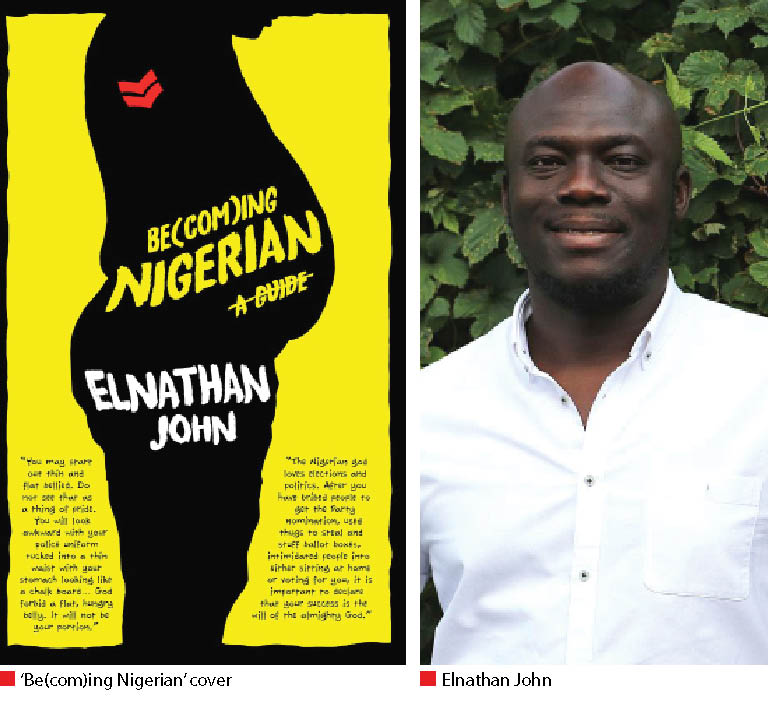‘Bless your hustle’: Elnathan John’s guide to becoming Nigerian
Elnathan John won prestigious awards and international acclaim for his debut novel ‘Born on a Tuesday,’ a tale of sectarian violence in the North of Nigeria seen through the eyes of a child. For his hotly-anticipated follow-up, the Kaduna-born, Berlin-based satirist and “recovering lawyer” has focused his attentions on the enduring cult of the hustle. […]

Elnathan John
Elnathan John won prestigious awards and international acclaim for his debut novel ‘Born on a Tuesday,’ a tale of sectarian violence in the North of Nigeria seen through the eyes of a child.
For his hotly-anticipated follow-up, the Kaduna-born, Berlin-based satirist and “recovering lawyer” has focused his attentions on the enduring cult of the hustle.
‘Be(com)ing Nigerian’ is a collection of vignettes sending up the most egregious tendencies of the rich and powerful in the author’s homeland, as well as the idiosyncrasies that shape the wider culture. But there is a common theme that connects it all.
“As a Nigerian you know the deal,” John writes. “Everything is a hustle: government, politics, religion, all a hustle.”
The tone is light and ironic throughout but the author is making a sincere point. He believes that hustle, the idea of getting ahead by any means necessary, has become a substitute for more profound values, with detrimental effects on society.
“The hustle is the temple where we worship,” John tells CNN. “It is the water that cleanses us of our sins. It is how we justify the things we do to get to the places that we all dream of.”
“For me, once we can cleanse this hustle, (we can) establish some rules, insert some shame and some collective values which can see unconscionable acts treated as punishable. Then we will begin the process of sanitizing the public space, and we will be able to demand better from our religious leaders, politicians, professionals, and all holders of power.”
Election message
The release of ‘Be(com)ing Nigerian’ was auspiciously timed to coincide with Nigeria’s general elections.
The country went to the polls a week later than planned on February 23, the climax of a contest that prompted fresh outpourings of disillusionment with politicians and widened sectarian divides.
John’s book lacerates the political class, as it does many other industries and professions, but if he has an election message for voters it is to urge personal responsibility.
“At a time when people are losing their heads in partisan battles, trading insults, spreading – wittingly and unwittingly – false and incomplete narratives about persons and groups, I would like Be(com)ing Nigerian to be a gentle prod, a reminder that often we are complicit in the abuses we accuse others of,” he says.
“It is a reminder that, as everyone claims moral superiority, introspection is more than ever before required, to interrogate the ways in which citizens can be connected to systems which perpetuate the abuse of power.”
Massacre of sacred cows
While John is an advocate of collective responsibility, he aims his fiercest barbs at those in positions of power, delivering a joyous massacre of sacred cows.
In a chapter titled “Politricking,” he poses the question: “Do you sometimes feel shame when you are caught doing something wrong? If the answer is yes, then you are not ready for Nigerian politics.”
Another section on religious leaders dwells on their taste for the high life: “If (critics) are so upset by your private jet, they should go and question the God who blessed your hustle and lifted you above your poor followers.”
The police are also excoriated: “Sometimes as a police officer, you will shoot people accidentally. The night is cold and full of errors.” Journalists are not spared: “The rule is simple: report first, verify later.” The author even sends himself up in a section on writers that revels in the trade’s reputation for producing pompous, sleazy drunks.
But John is also concerned with the everyday oddities of the Nigerian public, or as he puts it “the processes and results of social conditioning which makes people act the way they do in public and private spaces.”
His targets in this field include people who talk for too long in meetings, men who make a performance of paying the bill in restaurants, and – hustle alert – the absolute determination to brandish business cards at every opportunity.
Beyond satire
John has real people and real abuses in mind for his caricatures, and there is an occasional flash of anger beneath the book’s good humor.
There are also moments that reflect genuine fears. One chapter features a monologue addressed to a kidnapper, discussing how to secure the best deal for all parties. John admits this scenario has played on his mind.
But even when exploring the most troubling tendencies of violence, corruption, and bigotry, John is at pains to keep a distance.
“Writing satire in anger is counterproductive,” he says. “It only weakens the delivery and comes across as self-righteous sermonizing.”
“Good satire requires reflection, interrogation of the different roles that people play in any particular situation as well as the different layers of the exercise and abuse of power. One has to peel back those layers instead of merely being reactionary.”
The wealth of villainy cataloged in ‘Be(com)ing Nigerian’ does at least suggest this must be a boom time for satirists. But John is concerned that heightened absurdity threatens to render his craft redundant.
“I like to say that the effectiveness of satire is directly proportional to the level of shame a society or community has,” he says. “Nigeria is in some sort of post-shame dystopia, where it is quite difficult to shame politicians and groups in power.”
“The news itself favorably competes with even the best of satire.”
Source: CNN.com
